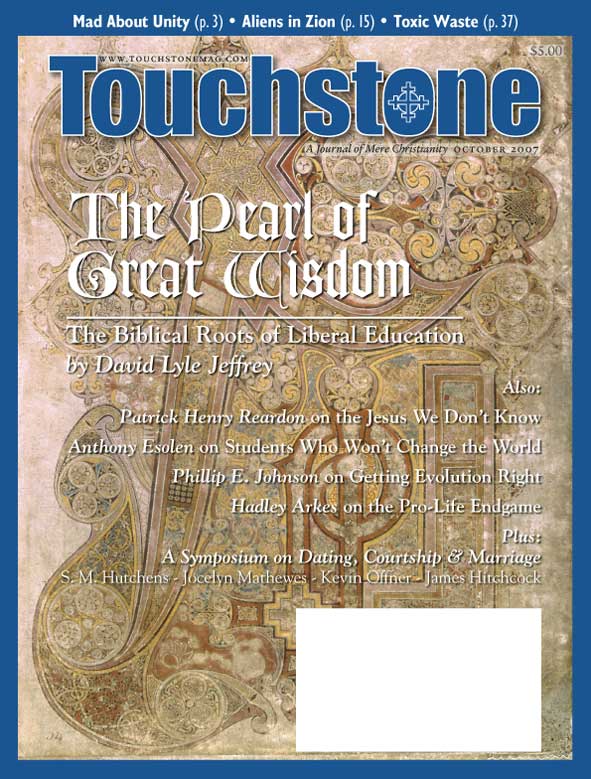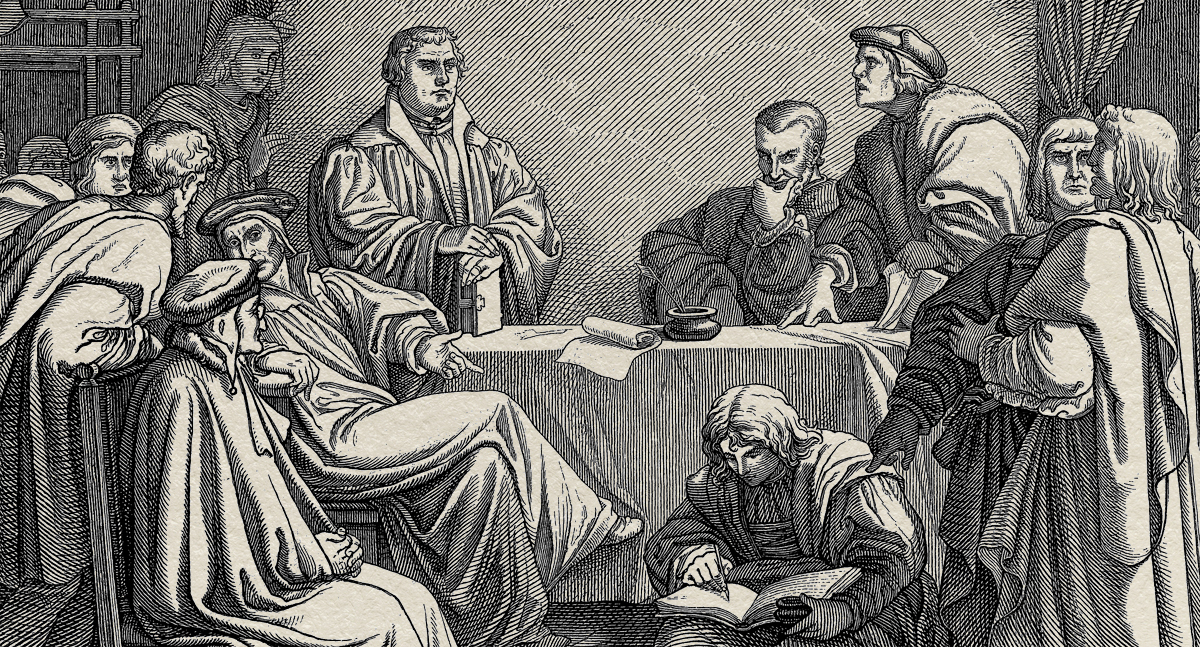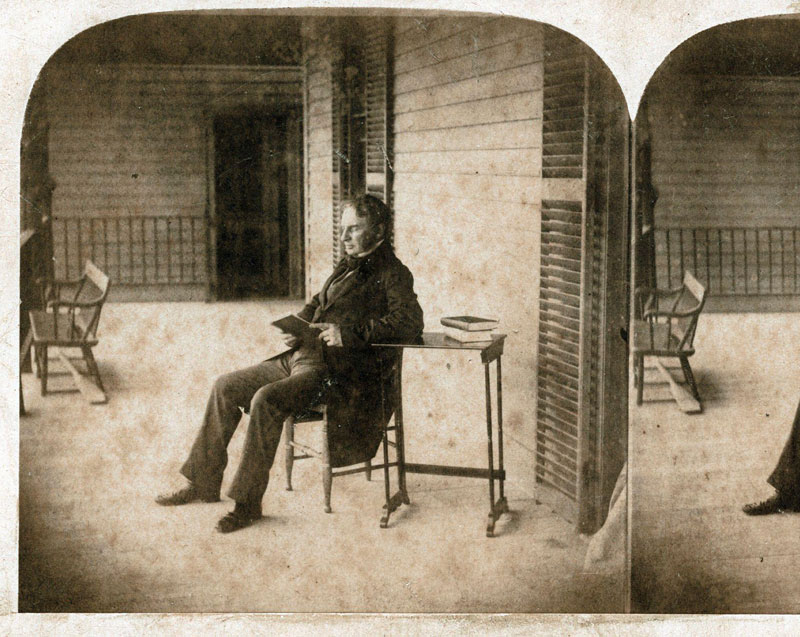The Pearl of Great Wisdom
The Deep & Abiding Biblical Roots of Western Liberal Education
What has Athens to do with Jerusalem?” Tertullian famously asked, while St. Jerome related a troubled dream in which “the Judge of all” accuses him of being not a Christian but a Ciceronian, and Alcuin admonished the monks of Lindisfarne, “What has Ingeld to do with Christ?”, each echoing St. Paul in his still more extreme warning to the Corinthian Greeks about both syncretism and idolatry: “What has Christ to do with Belial?”
“Caveat lector!” all three seem to say: A grave risk of theological adultery attends upon dalliance with pagan authors. It is as if they wanted to separate, even cordon off, humanistic learning from more “appropriate” spiritual preoccupations, and typical modern citations of these famous injunctions implicate Christianity in a certain dour abstemiousness where the liberal arts or belle-lettres are concerned.
But does such exclusivism accurately describe the biblical influence on the humanities in Western history? No. The rich tradition of liberal learning in the West has in fact remained at the most fundamental levels more biblical than classical. From the fountain of biblical study flowed not only a high order of widely applicable interpretative skills ( techné), but, more fundamentally, confidence in the crowning of knowledge with wisdom (its logos) continuously to correct and regenerate intellectual culture.
The classical goals of education, eloquentia et sapientia, eloquence and wisdom, cannot be successfully realized without a persevering reference to the higher and integrative wisdom of Sacred Scripture. Today, I will suggest briefly at the end, we have found to our cost that the secular substitute, lacking transcendence, cannot ground and integrate the humanities.
Citing the Pagans
In intellectual history, ironies and contradictions are the norm. Jerome himself defended a notably generous citation of pagan authors in his own writings, but did so ingeniously by an appeal to worthy precedent, namely, the practice of the biblical authors themselves. He thus established a pattern of argument and of intellectual and textual practice that tells us much about how it would be biblical, and not Roman, authors who would come eventually to provide the apologia for humane learning generally.
Jerome asserts that the Jewish biblical authors themselves make learned and thoughtful use of mid-eastern and Hellenic pagan literature (modern scholarship has confirmed many of his ascriptions in detail) and that St. Paul quotes from the Greek poets, such as Epimenides (Titus 1:12), Menander (1 Cor. 15:33), and Aratus (Acts 17:28). This, he says, establishes an order of appropriation self-confident enough that Paul can make skillful, fitting, often ironic use of alien instruments, much as when (Jerome says rather wryly) David uses Goliath’s own sword to hack off the fallen giant’s head.
Less humorously and yet tellingly for our subject, after citing the Deuteronomic laws permitting marriage to a captive woman, he asks: “What wonder . . . if I also, admiring the fairness of her from the grace of her eloquence, desire to make that secular wisdom which is my captive and my handmaid a rightful matron of the true Israel?”
Jerome goes on to cite a large bibliography of Jewish and Christian writers, bishops, and apologists, all of whom made deft use of Plato, Aristotle, Cicero, Virgil, and Quintillian to extend the reach and defend the claims of the gospel. But it is evident that pagan writers have not set the agenda.
Before Jerome, Clement had been a master of Greek literature, yet he celebrated the Hebrew scriptures as “wisdom in all its splendor,” distinct from and superior to the Hellenic foundation. As Robert Wilken noted in The Spirit of Early Christian Thought, in Clement’s writings the Bible “emerges for the first time as the foundation of a Christian culture.”
So Jerome could build confidently upon an already established culture for which the Scriptures have become implicitly (when not explicitly) the primary foundation. Intellectually, as time goes on, marriage to secular wisdom proves more fruitful than celibacy; progeny abound, and in their turn become fruitful.
However, the language this progeny speaks is no longer Greek, but a vernacular version of what the reader’s preface to the 1611 King James Bible calls “the language of Canaan” and southerners in the United Sates call “the language of Zion.” Even as metaphor, this indicates a cultural fact of decisive importance.
Wisdom & Eloquence
The development of the humanities in Western culture cannot be fully understood apart from an appreciation of scriptural husbandry and a kind of ecclesiastical mothering that, together, have birthed and nurtured Western intellectual life down to the present.
In brief, I want to support and extend Wilken’s thesis that the notion that Christianity was “hellenized has outlived its usefulness” and “that a more apt expression would be the Christianization of Hellenism, though that expression does not capture the originality of Christian thought nor the debt owed to Jewish ways of thinking and to the Jewish Bible.”
We cannot trace adequately the shaping of Western intellectual culture in the humane disciplines without considering a certain North African bishop, in particular, his enormously influential On Christian Doctrine, which helped to shape the way in which the Bible has come to be institutionalized in Western culture—even when invisibly. What Augustine set out to accomplish in this book was probably much less: really, just a broad-based guide to reading the Bible, sufficient to undergird an intelligent appreciation of Jewish texts in a Gentile culture.
But in its adequation of the goals of Ciceronian education to a biblical order of reasoning about language and truth, Augustine’s work became a touchstone for later humanistic authors. The list of those indebted to it is long, but includes Cassiodorus, Bonaventure, Wyclif, Erasmus, Petrarch, Milton, Newman, and C. S. Lewis, to name just a few.
Augustine’s pedagogical stratagems for the disciplines required an intelligent reading of Scripture that became in some ways more influential than his exegesis. They helped to make the Bible not only the historical foundation for humane learning in the West, but also the procedural and methodological basis of nearly all scholarship in the humanities, including textual criticism, philological analysis, poetics, language theory, narrative epistemology, historiography, anthropology, positive law, and natural law.
So what did Augustine do? With regard to the goals of education, he does not seem to differ much from Cicero: eloquence and wisdom are the enduring desiderata. But though himself a teacher of rhetoric, he is emphatic that eloquence is an instrument, not an intrinsic good.
Why is this important? Because divine wisdom is essentially the burden of Scripture’s content, and superior wisdom in the life of the reader its ultimate purpose. This wisdom is the intrinsic good at which all study should aim. Acquisition of this wisdom in turn provides a more reliable platform for a distinctive and superior grace in utterance. “One speaks more or less wisely,” Augustine thinks, “to the extent that he has become more or less proficient” in the Holy Scriptures.
Wisdom, rather than Ciceronian eloquence in itself, is the ultimate justification of all higher learning. Meanwhile, biblical language constitutes a special order of eloquence, “fitting for those of higher authority.” These convictions have had incalculable influence on Western culture.
Texts Are Means
Yet the instrumentality of language nevertheless requires careful reflection, and texts were for Augustine a means and not an end. He denounced “that miserable servitude of the spirit in the habit of mistaking signs for things,” arguing that “it is a mark of good and distinguished minds to love the truth within words and not the words themselves.” In the pursuit of wisdom, “we love those things by which we are carried along for the sake of that toward which we are carried.”
This image of education as a journey—ours is to be “a road of the affections” on which we learn the good by doing the good—deeply obligated to the stories of Abraham and the Exodus, is charged with implications for the practice of the intellectual and moral virtues. Not everything we use instrumentally is to be loved, but since the end of our pursuit is knowledge of that Being whose image we call “human,” knowledge of the human is essential to our own participation in that Being.
These formulations are echoed seven centuries later in Anselm of Canterbury’s Monologion, as an introduction to all higher intellectual reflection. Implicitly, our participation in the imago Dei makes of the study of the humanities something almost sacramental—at least as we acknowledge that much we recognize as the highest human good is not simply a product of our own acculturation, or as we might now say, our “social construction.”
Recognition of the magnitude and authority of our exemplar, Augustine wants to say, is essential, and not least because it allows the mind formed by the Scriptures to become capable of a true cosmopolitanism. For example:
If those who are called philosophers, especially the Platonists, have said things which are indeed true and are well accommodated to our faith, they should not be feared; rather, what they have said should be taken from them as from unjust possessors and converted to our use.
Referring to the Egyptians, who “had not only idols and grave burdens,” but also “vases and ornaments of gold and silver and clothing which the Israelites took with them secretly when they fled, as if to put them to a better use,” he writes:
In the same way all the teachings of the pagans contain not only simulated and superstitious imaginings and grave burdens of unnecessary labor, which each one of us leaving the society of pagans under the leadership of Christ ought to abominate and avoid, but also liberal disciplines more suited to the uses of truth, and some most useful precepts concerning morals.
That is, truth is truth from wherever it comes. (We can also, Augustine thought, expect there to be a harmonium between the books of Nature and of Scripture, rightly placed and understood.)
Obscurity and figurative discourse in relation to the “big questions” is not necessarily a failure of language or a means of gnostic exclusion of the uninitiated, but even in Scripture itself can be an artfully deliberate means of inducare, educare, leading to the Truth. The appropriate method of learned investigation is thus hermeneutically ordered: it is patient unfolding of the layers of meaning “hidden” in the text, separating “fruit” from “chaff”—the prototype of what would be called a millennium and a half later, by professional readers long secularized, explication de texte.
The Foundational Bible
We see this double effect of biblical study, of interpretative skills developed in the service of the acquisition of wisdom, growing through the Middle Ages, the Renaissance, the Reformation, almost to the present.
It is well known that not only were the monasteries centers for the study of Scripture and theological commentary and for the growth of experimental science and medicine, they were, because their libraries were the repository of Greek and Latin texts, durable centers for the continuation of classical learning as well. But here is the point too often missed: Classical learning, indeed all types of learning in the monasteries, was organized around a studium whose central preoccupation was the Bible as a foundation for all learning.
It was the study of the Bible, far more than the study of Cicero and the classical authors generally, that spread Latin literacy and produced also a textual tradition in several European vernaculars. Not only was the Bible foundational for general humane learning in European culture; without it, much of Roman secular learning and the ancient texts themselves would not have survived to be a part of our culture at all.
To be sure, there were convoluted attempts by some among the monastic librarians to justify holding on to texts which were not only pagan in the religious sense but, as in the case of Ovid or Catullus, wondrously lewd, even pornographic. The incongruity has led to not a little learned humor.
But there is more to it. To take but one example, the allegorizations of Ovid represent a tenuous but none-theless prodigious medieval effort to baptize works of art that could not, in their native garb (or lack of it), have been licitly embraced.
Of course, the liberal arts as we know them did not begin to emerge in their familiar form in Christian Europe until the work of the polymath Boethius (A.D. 480–525), the Roman Christian whose treatises on arithmetic, geometry, astronomy, and music are foundational for what he himself was first to call the quadrivium. Grammar, rhetoric and logic—the trivium—had been standard for some time.
From thence onward to the nineteenth century it is difficult to find a major European humanist whose intellectual formation was not in some way grounded in study of the sacred page. For Hugh of St. Victor, in his magnum opus on liberal education, the Didascalicon, the “seven to be studied by beginners” were assigned by the ancients principally as “the best tools, the fittest entrance through which the way to philosophic truth is opened to our intellect.” They are pillars of wisdom (cf. Prov. 9:1) rather than wisdom itself. This approach, which persisted well into the modern period, presupposes a still higher intrinsic good, and Richard of St. Victor, one of Hugh’s students, comments in his Doctrinale that “all arts serve the Divine Wisdom,” a wisdom found primarily in the close study of Scripture. “Each lower art,” he continued, “if rightly ordered, leads to a higher one. Thus, the relation existing between the word and the thing requires that grammar, dialectic and rhetoric should minister to history.”
Nothing Superfluous
In Hugh and Richard we can still hear Augustine’s voice: The liberal arts function like signs in a meta-language we must learn if we want a full-bodied engagement with human wisdom as it comes to us, both in history and ultimately in sacred history, of which, on the Christian view, all other story is anticipation or refraction.
Although the Scriptures are not finally tribalist or exclusive, their attentive study requires our mastering what will seem to the casual reader apparently “useless and forbidding matter,” perhaps especially in the Old Testament histories. Hugh teaches that there is value even in the alien cultural particulars, because in a program of learning focused on Wisdom “nothing is superfluous.”
For Bonaventure, a century later, all of the arts are both a means of common grace and a trace ( vestigium) of that Divine Wisdom of which human flourishing is an axiom. In his De Reductione Artium ad Theologiam he traces all the arts, and particularly the liberal arts, to what for him is the ultimate source of our knowledge, human and divine, namely, Scripture as articulated divine word.
By “arts,” he means secular or empirical knowledge as distinct from the knowledge of God. On this view, all knowledge is a light, or means of our understanding, but the highest of all lights—superior to philosophical knowledge, the knowledge arrived at by sense perception, and the mastery of the mechanical arts—is the “light of Sacred Scripture.”
Yet, he writes, the “Wisdom of God which lies hidden in Sacred Scripture is hidden in all of knowledge and in all nature.” In this light, “all divisions of knowledge are handmaids of theology.” Here, in short, is yet another medieval affirmation of the providential unity of reason and revelation, faith and reason, making explicit to the reader that Sacred Scripture is the key to any possible unity of prospect and any possibility that reason (and the humanities generally) will come to its proper end.
The confidence late medieval intellectuals expressed in this view of the interconnectedness of liberal learning or the products of reasoned investigation with biblical revelation and its progressive understanding in the Church is enduringly impressive. It is also presuppositional to intellectual life in the Renaissance humanist tradition and is regarded by the humanists themselves as liberating.
On the one hand, John Calvin will say in the Institutes that once we have acknowledged the Spirit of God to be “the only fountain of truth,” it will in fact oblige us “ not to reject or condemn truth whenever it appears.” Anything (natural or human) which is “noble and praiseworthy” can be traced to the hand of God, whether the work be done by fellow believers or by the “ungodly.”
On the other hand, other Renaissance humanists sought recovery of the Scriptures in better critical editions and historical commentary alike; the rallying cry of Erasmus was “ Ad fontes!”—“Back to the sources.” To the evangelical humanist movement he exemplified, in which figures such as John Colet, Jacques Lefevre d’Etaples, Johannes Ruechlin, and even, in his own fashion, Martin Luther played a part, we owe the dramatic recovery of Scripture to a wider intellectual discourse which became vernacular in the sixteenth century.
Engaging Scripture
What we witness in such a vigorous renewal of commitment to Holy Scripture is not, as some have too lightly thought, simply a kind of narrowing bibliocentrism. It is evidence, rather, of a renewed primary engagement with the actual foundation of Western intellectual culture, evidence that Scripture continued to occupy a unique status in humanistic university discourse beyond the High Middle Ages well into the Reformation and the Modern period.
I do not mean that the ipse verbum of Scripture is everywhere obtrusively present in phrasing or citation, as we might find it in the early monastic writings, say, or over the centuries in the Scripture-saturated writings of such figures as Bernard of Clairvaux, Jeremy Taylor, Bunyan, and Milton. I mean it formed the presuppositional and teleological framework in such disparate scientists as Boyle, Newton, and Poincarré, in philosophers such as Locke, Pascal, Kierkegaard, and Maritain, poets such as Cowper, Goethe, Charlotte Brontë, the Brownings, Eliot, and Claudel, not to mention in legal thinkers such as Henri de Bracton, Sir Edward Coke, F. W. Maitland, and Sir William Blackstone.
In all of these authors, biblical allusion and plenitude of biblical idiom is a reflex of something deeper. The Bible has in the Western tradition become what a Platonist might call the “intelligible object,” but I would prefer to call rather an ontological object of intellectual reflection—invisible but present—even when the immediate epistemological object is apparently something else.
In fact, the presence of Scripture as an ontological object can often be felt even when it is being explicitly challenged. A notable instance is the opening scene of Goethe’s Faust I, where we find the ambitious professor Faust determined upon a translation of John’s Gospel superior to Luther’s, intending to subvert the authority of the original text.
The text of Scripture remains critically “present” throughout his great Romantic drama. It is the highest tribute to Scripture’s vital presence as ontological object that all Goethe’s ambitions may be summarized as a wish not merely to translate but rather to rewrite the Bible.
The same sort of thing might be said of Rousseau’s Confessions, in which biblical language is employed to subvert both biblical precept and the intrinsic procedure and methodology of Augustine as a benchmark orthodox reader of Scripture. Rousseau intends a kind of rascal’s reading of Augustine’s Confessions, even (and perhaps especially) if it reveals, de facto, an infernal reading of the Bible.
A Fruitful Scripture
Yet not all outgrowths of Romanticism’s triumphant subjectivity required such gestures. In the thirties, the Southern Agrarians Cleanth Brooks, Robert Penn Warren, and Allen Tate silently appropriated for their “New Criticism” a methodology evolved for biblical study. In the last two decades, literary theorists like Robert Alter, Meir Sternberg, and David Damrosch have put on center stage the ancient and hallowed Jewish traditions of Bible study as an introduction to modern comparative literary theory and criticism.
These efforts have in turn morphed rather quickly into a renewed effort to study the biblical texts in their own right, outside of the dominant professional religious strictures. In Burton Visotzky’s The Genesis of Ethics and Aviva Zornberg’s The Beginning of Desire, as more recently in Harold Bloom’s Jesus and Yahweh, for example, we see biblical texts applied to a kind of new secular humanistic discourse for the marketplace.
Since the 1970s, studies of “the Bible as Literature” and “the Bible and Literature” have emerged to great prominence in the university. But it might more truthfully be said that this kind of treatment has been emerging since Matthew Arnold’s program to re-situate the Bible as the greatest English literary (rather than religious) foundation in the nineteenth century, continued since by influential literary theorists like Roland Barthes and Northrop Frye.
Within the university, more and more scholars see the value of the Bible and biblical tradition to the liberal arts. Some of this is occasioned by a critique of the state of education for its failure to maintain its focus on the redemptive and broadly humane purpose of a liberal arts education.
Two recent and influential works, The Decline of the Secular University by C. John Sommerville and Harry Lewis’s Excellence Without a Soul: How a Great University Forgot Education both lament our failure to retain at the heart of the liberal arts curriculum the values we have traditionally associated with biblical wisdom. Sommerville writes with the bewilderment of a biblical prophet who cannot quite believe that from his own mouth such words are proceeding: “The academy needs to learn to speak theologically. This undoubtedly sounds alarming, but . . . we have been really creating a tacit but unfortunately barren substitute for it all along.”
A Rich Study
Yes. And what we have found to our cost, as I noted at the beginning, is that the secular substitute for the biblical studium, lacking transcendence, fails to provide anything like an ontological object sufficient to ground and integrate the curriculum. According to Sommerville, we need most urgently to see that “the concepts of religion and of the human will survive, witnessing to an ultimacy we can’t ignore.”
In retrospect, attempts to pursue the liberal arts as though they were in themselves intrinsic goods, and not pillars of wisdom, have not been sustainably fruitful. As the poet Charles Tomlinson puts it, we have discovered repeatedly that “facts have no eyes.”
In our sometimes enthusiastic preoccupation with techné at the expense of logos, promoting technical excellences over wisdom, we may have committed our own version of the error forewarned against in one of the earliest defenses of the liberal arts, Martianus Cappella’s ninth-century De nuptiis philologiae et mercurii.
He argued that the Ciceronian goals of education, eloquentia et sapientia, cannot be successfully realized without a perseverant reference for meaning to the higher and integrative wisdom of Sacred Scripture, such as Augustine and others had championed. We can now see, perhaps, a little more clearly what he saw, that it was this “turning of the many toward the One” that allowed the predominant riches of the biblical studium to become a constantly flowing fountain, irrigating all of the other arts.
As with most types of effective irrigation, much of this has been most effective when least ostentatious. The commitment to Scripture as our fundamental study has brought us not only a high order of interpretative skills but also a confidence in wisdom that continuously corrects and regenerates intellectual culture. Whether in the medieval university, in the dissenting academy of the eighteenth century, or the American liberal arts college movement of the nineteenth, this recurrent stream has been the lifeblood of vital educational development.
Centering on Wisdom
I wish to conclude with a comment on that higher goal towards which Scripture, more than Cicero, has pointed our traditions: sapientia, sophia, chokma. If there is anything we need now to learn from the fruitful centuries of practice in the humane disciplines, it is that we cannot long thrive without a centering of our efforts upon the getting of wisdom.
Hugh of St. Victor already in the twelfth century acknowledged the hypertrophy of disciplines with which we are far more familiar—and the growth of what he called the “appendages of the arts.” He warned that those who “willingly desert truth in order to become entangled in these mere byproducts of the arts, will find . . . exceedingly great pains and little fruit.”
We who have experienced a far worse hypertrophy of the disciplines and perhaps more than a little entanglement in the painful byproducts can confirm this. The corrective for Hugh was to recognize that the humane disciplines are instruments to an intrinsic and higher good, namely, wisdom: an abiding, life-changing, and personally transcendent gravitas.
We who practice and teach the humane disciplines must remind ourselves that we are not simply in the knowledge industry, but—and more compellingly—committed to the business of wisdom.
David Lyle Jeffrey is Distinguished Professor Emeritus of Literature and the Humanities at Baylor University and Resident Distinguished Professor of Baylor Institute for Studies in Religion.
subscription options
Order
Print/Online Subscription

Get six issues (one year) of Touchstone PLUS full online access including pdf downloads for only $39.95. That's only $3.34 per month!
Order
Online Only
Subscription

Get a one-year full-access subscription to the Touchstone online archives for only $19.95. That's only $1.66 per month!
bulk subscriptions
Order Touchstone subscriptions in bulk and save $10 per sub! Each subscription includes 6 issues of Touchstone plus full online access to touchstonemag.com—including archives, videos, and pdf downloads of recent issues for only $29.95 each! Great for churches or study groups.
Transactions will be processed on a secure server.
more on education from the online archives
more from the online archives

24.6—Nov/Dec 2011
Liberty, Conscience & Autonomy
How the Culture War of the Roaring Twenties Set the Stage for Today’s Catholic & Evangelical Alliance by Barry Hankins
calling all readers
Please Donate
"There are magazines worth reading but few worth saving . . . Touchstone is just such a magazine."
—Alice von Hildebrand
"Here we do not concede one square millimeter of territory to falsehood, folly, contemporary sentimentality, or fashion. We speak the truth, and let God be our judge. . . . Touchstone is the one committedly Christian conservative journal."
—Anthony Esolen, Touchstone senior editor











